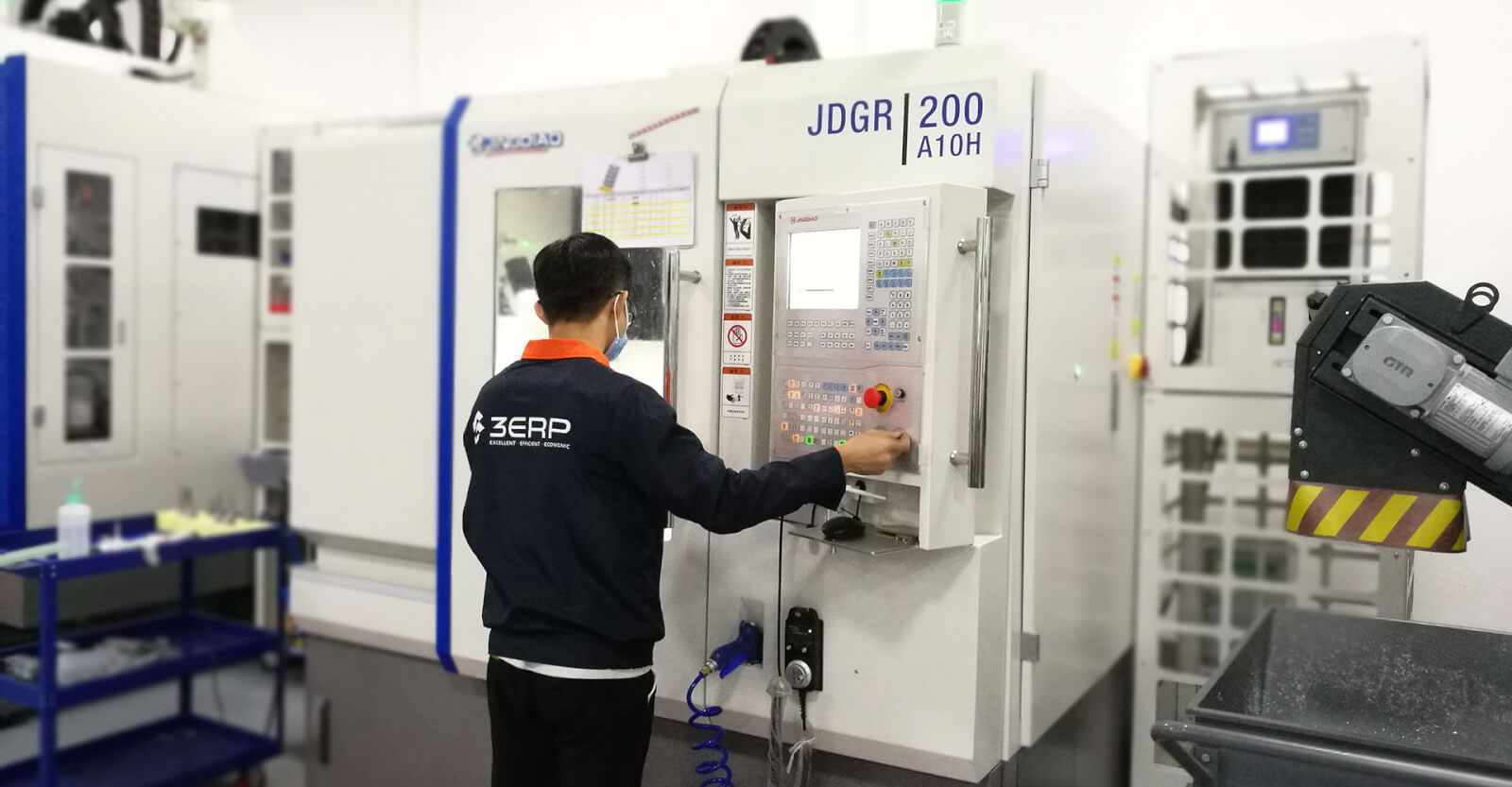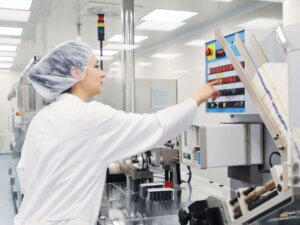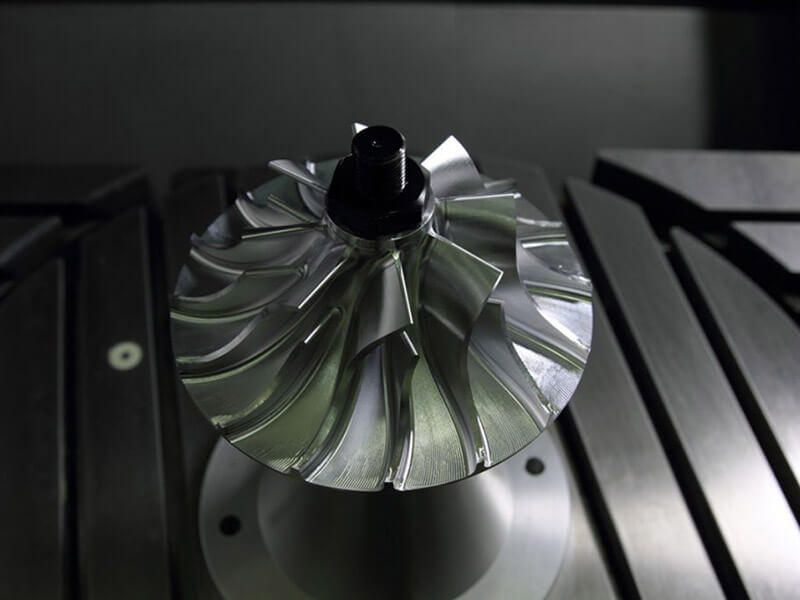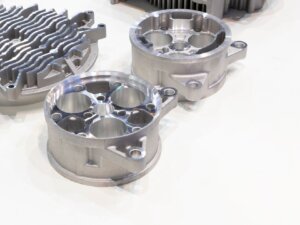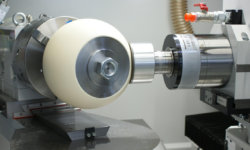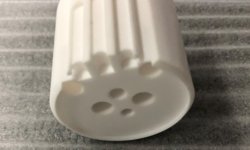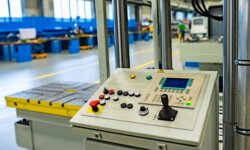What is a machine shop?
A machine shop is a place where machining, a type of subtractive manufacturing, takes place. It’s not a “shop” like a store, but rather a room or building containing machinery where machinists and other technical staff make things. The shop can be part of a large factory or a room in the premises of a small business.
The “machines” in question are pieces of equipment with cutting tools. These machines may be used for drilling, cutting, shaping, milling… anything that involves removing material from a block of metal, plastic or other raw material. Machine shops may also provide other technologies like 3D printing, but subtractive manufacturing is the main concern.
Machine shops may be operated by manufacturers of specific branded products, or by third-party manufacturers (like 3ERP) who offer custom online CNC machining services to range of customers across different industries. (You’d be surprised how many businesses require the services of a machine shop at some point or other!)
Machine shops have existed since the 19th century. Today’s machine shops, however, are very different.
9 Things you’ll find in a machine shop
Machine shops contain many pieces of equipment, though the range and type of equipment depend on the size and purpose of the facility.
Shops typically contain some or all of the following machines, in addition to others:
- Milling machine. A mill is a machine that uses rotary cutters to remove material from the workpiece. Many types and sizes of milling cutters exist, allowing the milling machine to carry out different kinds of cut, from threading to roughing.
- Machining center. A machining center is another term used to describe a CNC milling machine, a mill controlled by computer instructions. Machining centers are multifunctional pieces of equipment capable of carrying out complex procedures at high production rates.
- Lathe. A lathe is a kind of machine that rotates a workpiece as it makes contact with a cutting tool, enabling operations like sanding, knurling and facing. A CNC lathe, sometimes called a CNC turning center, is controlled by computer instructions.
- Grinding machine. A grinding machine is a kind of power tool that uses an abrasive wheel to grind the workpiece. Grinding is usually employed as a finishing process, because it provides a high surface quality.
- Drill press. A drill press is a kind of mounted drill whose movement is controlled by a lever. Drill presses are more powerful and stable than handheld drills and can be used for various manufacturing tasks besides drilling holes.
- Bandsaw. A bandsaw is a multi-use cutting machine used to make straight cuts. It is used for roughly removing sections of material before further cutting.
- EDM equipment. Electrical Discaharge Machining (EDM) is a process that uses sparks instead of a physical cutting tool to penetrate the workpiece. Alternative versions of the technology use a wire for the tool electrode.
- Surface finishing tools. Most parts require a surface finish of some sort, and various pieces of equipment are used to buff, polish, sandblast and color them.
- Coordinate measuring machine. A coordinate measuring machine (CMM) is a device used to measure the geometry of parts, ensuring that the machined part matches the original dimensional specifications. A CMM helps to guarantee accuracy and quality.
Machines carry out different manufacturing operations, and may be either manual (operated by a machinist) or equipped with Computer Numerical Control (CNC) technology.
Besides machinery, a machine shop may also contain stores of raw material that can be machined to make parts. However, depending on the scale of the manufacturer, materials may be stored elsewhere, in a warehouse for example.
Machinists may also use their machine shop to digitally design parts, which means the area may contain computers equipped with CAD software. Computers may also be used to operate CNC machining equipment.
CNC machine shops: How digitalization has changed the machine shop
Computer numerical control technology became commonplace in the latter half of the 20th century, changing machine shops forever.
Before the advent of the CNC machine shop, all machining equipment was operated manually or mechanically, which meant that the accuracy of machined parts depended largely on the skill of the machine operator.
The CNC machining process, on the other hand, have all movements fully guided by computer instructions.
Digital 3D designs are converted into G-Code, which tells the CNC machine what to do in order to create the 3D shape. Every movement of the cutting tool is controlled to millimeter precision by the program, which allows the machine to produce perfect duplicate parts to a tright tolerance without error.
CNC machines are also capable of carrying out highly complex cutting operations in a short span of time. Some machines, such as 5-axis CNC mills, have swiveling spindles or tables, which allows the cutting tool to cut the block of material from any angle without interruption.
The 5-axis CNC machining technology can machine parts very quickly, which is useful for machine shops producing large quantities of parts for serious projects.
A CNC shop is capable of much more than an old-fashioned machine shop. Additionally, machinists working at CNC machine shops are usually skilled in digital design and therefore capable of tailoring digital designs for CNC machining.
Almost all CNC machinists have experience in manual machining, as this skill helps them better understand the CNC machining process.
Furthermore, a CNC machine shop will usually be capable of working from digital CAD files, technical drawings or a combination of the two. (In many cases, technical drawings are required to provide further clarification about a design.)
Balancing CNC machining and manual machining
Interestingly, the rise of the CNC machine shop hasn’t made manual machining redundant. Far from it.
Certainly, CNC machining has obvious advantages over manual machines. CNC machines are as precise as can be, they guarantee repeatability, and fabrication can take place without supervision, allowing staff to carry out other tasks.
In general, you won’t find a serious machine shop that doesn’t use CNC for the bulk of its operations. CNC shops are now replacing traditional machine shops, due to the undeniable advantages of the new technology.
But manual machining has its benefits too.
For starters, manual machines are much cheaper than CNC machines. That means machine shops can invest in and operate several manual machines without breaking the bank. Granted, this may be more of an advantage to the machine shop than the customer, but the lower overheads may result in lower costs for the customer too.
More importantly, manual machines can be operated without prior computer programming. This means machinists can get to work on a part in an instant, potentially resulting in shorter turnaround times than would be possible with a CNC machine.
For simple, one-off parts and components that need to be delivered fast, manual machining still represents a valuable service and a credible option over CNC machining.
It’s also handy for a machine shop to keep manual machines around for simpler projects, as they can support while the multi-axis CNC machines are busy with other operations.
10 Machine shop Safety Tips
Operating a machine shop requires years of experience and know-how, and several rules must be followed to ensure machine shop safety.
Machine shop safety rules include:
- Wear appropriate clothing. Loose-fitting clothes, flammable clothes, jewelry and open-toed shoes are all prohibited in the machine shop. Safety shoes are preferable in any manufacturing environment. Long hair should be tied back and tucked under a shirt or cap.
- Wear safety glasses. Goggles or other eye protection should be worn when operating any kind of machine. Chips removed from the workpiece can cause serious injury.
- Be healthy. Workers cannot operate machinery if ill, tired, inebriated or taking performance-affecting medication.
- Know the machinery. Only qualified machinists should use machinery. If a machine is new or unfamiliar, workers should read the operator’s manual before use. Identifying the switch location is essential.
- Keep the shop clean. Dirty floors can cause slippage, while buildup of dust and scraps can become a fire hazard. The environment and machinery should be kept dry. Tools should be kept clean and inspected regularly.
- No distractions. Workers operating machinery should not wear headphones, use their phones or engage in any other potentially distracting activity.
- Do not leave machines unattended. Machines should be attended while operational. Workers should not exit the shop until machinery has come to a complete stop.
- Exercise caution with hazardous materials. Some machining materials are highly flammable. These should be handled with extra care to prevent risk of fire.
- Store items safely. Materials and tools should be stored in a clean storage place where they cannot fall or be tripped over by workers.
- Clearly mark exits. Emergency exits should be clearly identifiable in case of accident or emergency. Access to the exits should be kept clear at all times.
Choosing the right machine shop
For businesses and product developers looking to outsource manufacturing, there are several things to consider when choosing a machine shop.
Some machine shops are more reliable than others, while some are better suited to certain types of machining operations than others. Some will have experience working with clients in a specific industry, which can be beneficial for potential new customers in that same field. Ask the machine shop staff about their capabilities and experience.
A good machine shop should offer all of the following:
1. Competitive prices
Machine shops will charge different rates based on their size, experience and other factors. Choosing the right machine shop involves finding a manufacturer with good prices — but this should never be at the expense of quality.
Although you need to be savvy, you should never select a machine shop just because it offers the lowest rates. This can often spell trouble: if a machine shop proposes a rate that clearly isn’t profitable for them, it means they’ll probably try to cut corners in order to improve their profit margins.
2. Confidentiality
Third-party machine shops carry out custom CNC machining and other manufacturing tasks for businesses, and those businesses need assurance that their designs will remain private.
Fortunately, there are legal instruments for ensuring confidentiality between a machine shop and its customers. Demand that your machine shop sign a Non-Disclosure Agreement (NDA) before undertaking any manufacturing. This ensures that your designs will not be passed on to mysterious third parties.
Reject any machine shop that refuses to sign an NDA.
3. Quality, reliability & honesty
Machine shops should have experienced machinists and use modern CNC machines and measuring equipment. If you doubt whether this is the case, give the machine shop a call or visit the facility in person before beginning your working relationship.
Shops with a range of manufacturing capabilities are preferable to those with limited offerings. However, not all machine shops will be honest about their limitations: it’s better to find a shop that tells you upfront what it cannot achieve than a shop that tries (and fails) to go beyond its capabilities.
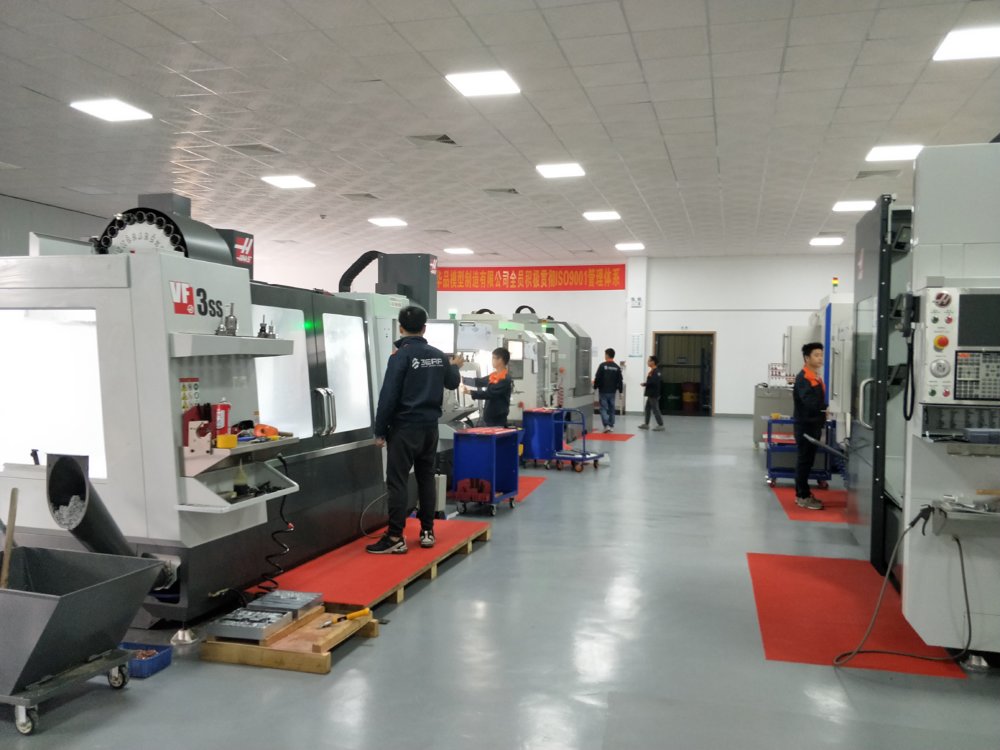
3ERP CNC Workshop
Looking for a respected CNC machine shop with all of the above? Look no further than 3ERP, a global provider of manufacturing and prototyping solutions, available and at your service. We ship your precision machined parts anywhere in the world, in seven days or less.
